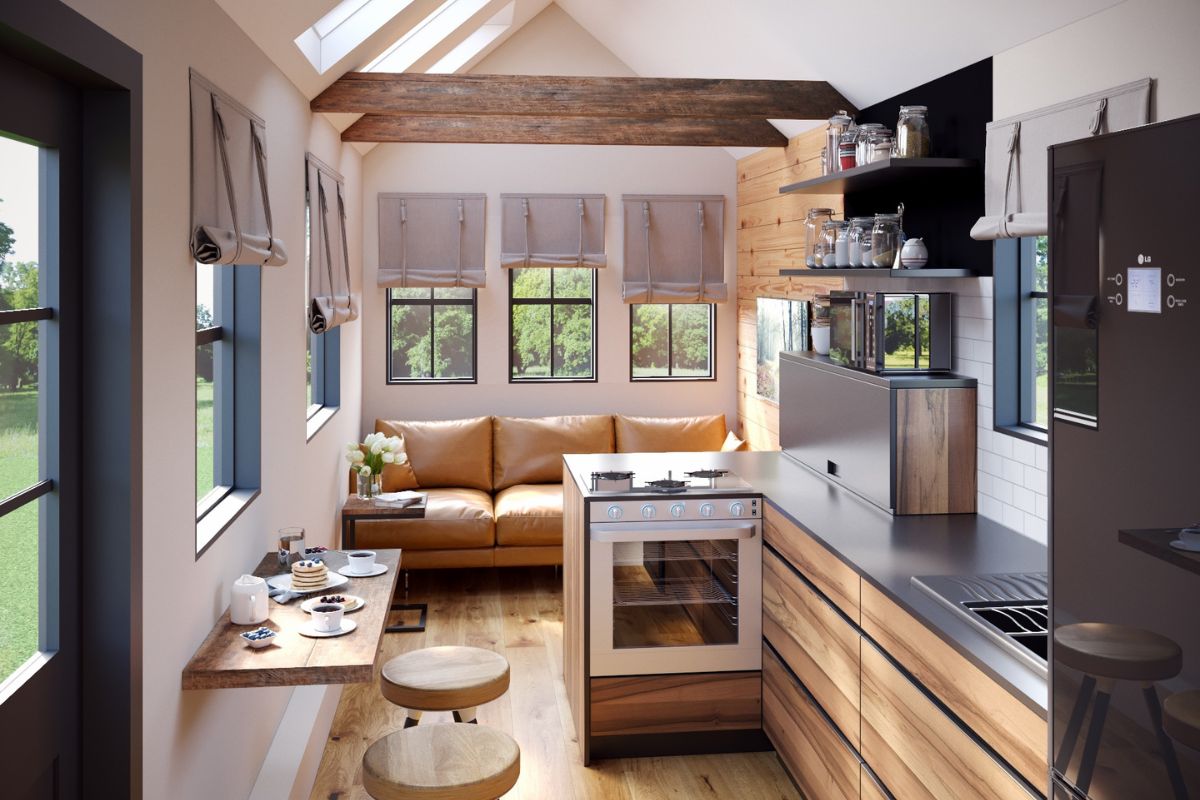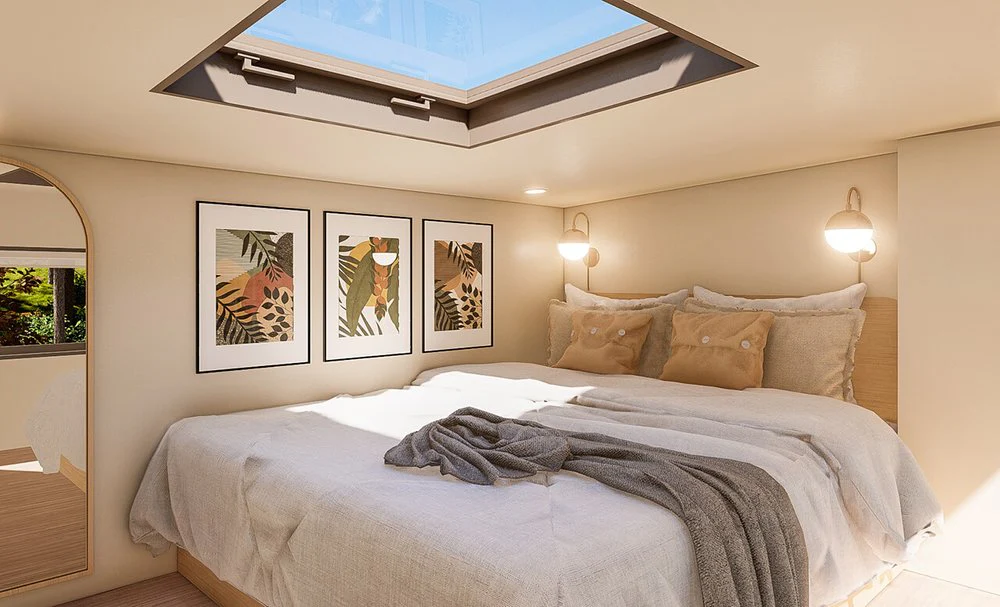Must-Know Tips for Full-Time RV Living

Living an RV lifestyle is more than just a trend — it's a movement. People from all walks, all ages, and from all across the globe are embracing this nomadic lifestyle, trading in traditional homes for a life on wheels. Let's take a look into different tips to this life changing experience and the freedom it unfolds.
RV living allows individuals to embrace a nomadic lifestyle, exploring new horizons while enjoying the comforts of home on wheels.
- Mastering the RV lifestyle
- Understanding the ins and outs of the RV
- Organizing and decluttering your RV
- Transitioning to a full time RV life
- Adapting to life on wheels and embracing the uncertainty
- Maximizing your RV usage
- Mastering necessary survival skills
- Learning eco friendly practices for your RV
- Understanding the legal rules and regulations
- Embracing nomadic life and all the adventures it offers
Essential RV Living Tips
Welcome to the art of mobile living. Mastering this lifestyle means knowing how to manage your belongings for minimalism, plan your journey for maximum enjoyment, and prioritize your needs above wants. You want to keep it compact, after all, it's one of the key adventures in compact living!
Selecting the Perfect RV
Tailor to Your Lifestyle
The initial step in embracing full-time RV living involves choosing the ideal recreational vehicle (RV). A range of RV categories is available, comprising motorhomes, travel trailers, fifth wheels, and campervans, each offering distinct advantages and disadvantages. It's crucial to pick the one that matches your lifestyle and needs precisely. If you plan to embark on frequent journeys and crave the convenience of a mobile residence, a motorhome might emerge as your most suitable option. Conversely, if you lean towards a compact, adaptable alternative, a campervan could emerge as your optimal selection.
Evaluate Size and Layout
Thoughtfully consider the size and layout of your chosen RV. Do you require multiple bedrooms, a spacious kitchen, or an expansive living area? Your RV's layout should be tailored to your living needs and personal preferences. Keep in mind that larger RVs may provide more room but can be challenging to maneuver and park, particularly in tight spaces.
Research Brands and Models
Conduct thorough research on various RV brands and models to identify one known for its quality, durability, and features. Delve into reviews, participate in online forums, and seek recommendations from experienced RVers. Pay attention to factors such as insulation, storage capacity, and overall build quality, as these factors significantly impact your comfort during your travels.
Maintaining an Eco friendly RV
Traveling in an RV offers a wonderful opportunity to experience nature, but it can have a somewhat negative impact on the environment.
While you're on this exciting journey, don't forget your responsibility towards our home, The Earth! Using solar panels, reducing water waste, and recycling can make your life on wheels, a sustainable one!

Practical Tips
In this world, you need to be prepped to roll with some literal and metaphorical bumps. Equipping yourself with necessary survival kits, emergency procedures, and how to fix common RV issues can make surviving in an RV a breeze.
Being an RVer means being adaptable. From harsh weather conditions to a flat tire, a lot can happen on the open road. But with a comprehensive RV guide, you learn to deal with it like a pro!
Maintenance and Repairs
Implement Routine Maintenance
Regularly inspect and maintain your RV to prevent expensive repairs and breakdowns. Keep an eye on factors like tire condition, brakes, engine health, and all internal systems within the RV. Maintain a meticulous maintenance schedule and promptly address any issues to ensure your RV remains in excellent condition.
Acquire DIY Skills
Equipping yourself with basic DIY skills can save you money and inconvenience while on the road. Familiarize yourself with troubleshooting common RV issues, making minor repairs, and conducting routine maintenance tasks. Carry a toolkit and spare parts to tackle unexpected problems.
Invest in Emergency Roadside Assistance
Join a reputable roadside assistance program that can offer support in the event of breakdowns or accidents. This service provides peace of mind and ensures you won't be stranded in unfamiliar locations.
Campground and Boondocking
Reserve Campgrounds in Advance
If you plan to stay in campgrounds, make reservations well in advance, especially during peak travel seasons. Many sought-after campgrounds fill up rapidly, and pre-booking ensures you have a guaranteed spot at your desired destination.
Master Boondocking Basics
Boondocking, often referred to as dry camping or wild camping, involves off-grid stays without access to water, electricity, or sewage hookups. To thrive in boondocking situations, invest in essentials like solar panels, a generator, and a portable water supply system. Learn efficient resource conservation techniques for water and electricity and adhere to Leave No Trace principles to minimize your environmental impact.
Prioritize Safety
While boondocking can provide unparalleled solitude and breathtaking scenery, safety should always be paramount. One of the more essential mobile living tips is mastering the art of RV maneuvering – from tight corners to the perfect park. Plus, managing routine maintenance tasks can keep you miles away from unnecessary breakdowns. Opt for well-traveled and well-lit parking areas, secure your doors at night, and maintain awareness of your surroundings. Carrying self-defense tools and having a reliable communication system for emergencies is advisable.
Clever Tips for Comfortable Living
A clutter free life leads to a clutter free mind. The formula to simplifying RV lifestyle lies in understanding the difference between need and want. Your RV isn't just a vehicle; it's your kitchen, office, and bedroom all packed into one box on wheels! Maximizing RV use means creating a work space, finding multipurpose fixtures and fittings keeping your compact space private and, most importantly, comfy.
Work and Connectivity
Establish a Remote Work Setup
A significant number of full-time RVers work remotely to sustain their lifestyle. Ensure you have a dependable internet connection, such as a mobile hotspot or satellite internet, to maintain communication and productivity while on the move. Dedicate a specific workspace within your RV to separate work from leisure.
Achieve Work-Life Balance
Maintaining a healthy work-life balance is essential for your overall well-being during full-time RV living. Set clear boundaries for your work hours, prioritize self-care, and allocate time for outdoor activities and exploration. The beauty lies in the freedom to relish new experiences, so refrain from allowing work to dominate your schedule.
Tips for Transitioning
Preparing yourself mentally, physically, and financially makes this shift smoother. The best way to go about it is to absorb as much as you can from expert RV advice, blogs, videos, and of course, the down to earth RV guide.
Community and Social Life
Engage with RV Clubs and Forums
The RV community is extensive and welcoming. Participate in RV clubs and engage in online forums to connect with fellow RVers, share your experiences, and gather valuable information regarding campgrounds, routes, and tips for life on the road.
Attend Gatherings and Events
Whenever possible, partake in RV gatherings and events. These gatherings offer exceptional opportunities to forge new friendships, exchange travel anecdotes, and create lasting memories with like-minded individuals.
Be a Considerate Neighbor
Exhibit good RV etiquette when staying in campgrounds or boondocking locations. Respect designated quiet hours, maintain a tidy space, and be considerate of your neighbors. Cultivating positive relationships with fellow RVers enhances your overall experience.
Conclusion
Full-time RV living holds the potential for an immensely gratifying and liberating lifestyle. However, thorough planning and preparation are essential to ensure a seamless and enjoyable journey on the open road. From choosing the right RV to managing your finances, maintaining your vehicle, and striking a work-life balance, these indispensable tips equip you to navigate challenges and embrace the freedom that accompanies full-time RV living. With careful planning and an adventurous spirit, you can embark on an unforgettable journey that transforms your RV into a genuine home on wheels.







.jpg)


